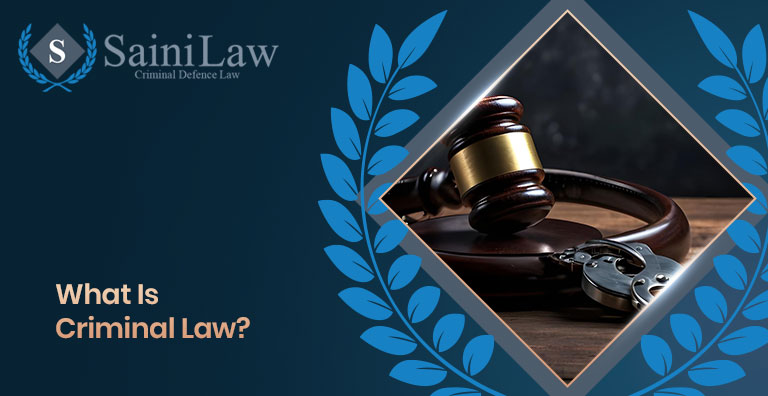Canada has one of the world’s most developed criminal justice systems. It is considered the cornerstone of our democracy and an integral component of maintaining law and order. Our criminal justice system aims to diminish crime and its detrimental effects through policing, prevention, corrections, courts, and reintegration.
However, due to its complexity, many Canadians find it difficult to understand how it works. This is because there are various levels of stakeholders and government, either at a federal or provincial level.
To give you an overview, one of the best criminal defence lawyers in Brampton has created this guide to what the criminal justice system is and how it works. Keep reading to discover important information.
Canada’s Criminal Justice System: Handy Guide from One of the Best Criminal Defence Lawyers in Brampton
Want to understand the fundamentals of the Canadian criminal justice system? One of the best criminal defence lawyers in Brampton explains.
Criminal vs. Civil Law
The Canadian criminal system has two types of laws which are often confused: criminal and civil law.
What Is Criminal Law?

Canada’s criminal laws punish people for violating public law statutes such as the Criminal Code, the Controlled Drugs & Substances Act, and other provincial or federal criminal statutes.
Canadian criminal law deals primarily with crimes that are omissions or prohibited acts. Such acts can either be against the state or society, and its aim is to punish individuals who cause harm or injury to either. The government, via Crown attorneys, can bring charges against the accused. If the accused is found guilty, they face punishments as provided in the Criminal Code. These may include imprisonment, fines, probation or other disciplinary consequences.
Groupings of criminal law in Canada can further be divided into two offences: summary and indictable.
Summary Offences
For minor crimes, the accused may face less severe penalties when facing a summary offence. The maximum punishment ranges from a fine of $5,000 up to two years in prison or both, depending on the severity of the crime. Some instances of summary convictions include:
- Soliciting prostitution
- Causing a disturbance
Indictable Offences
In the case of indictable offences, these crimes are often much more severe than those that result in a summary conviction. The penalties may vary depending on the severity of individual cases and may result in a few years in prison to life. Some examples of indictable offences include:
- Drug trafficking
- Murder
- Robbery
- Fraud of more than $5,000
It is worth mentioning that certain crimes may be considered hybrid offences. These crimes can be tried as summary or indictable offences, depending on their severity. Some examples are sexual interference, sexual assault, and the dangerous operation of a motor vehicle.
What Is Civil Law?
In Canada, civil law fundamentally means any prosecution or accusation done privately, either between organizations or individuals. Under civil law, the individual accused of committing a crime is often called the defendant and the person making the allegations is the plaintiff. Personal injury is one example of a civil case, wherein an individual files a lawsuit against another for an injury.
The purpose of a civil suit is to obtain compensation for damages sustained by the defendant. If the civil court finds the defendant responsible for damage suffered by the plaintiff, they need to provide financial compensation.
Furthermore, civil law can be divided into four categories:
- Tort Law
Typically, a tort is an injury to an individual or their property because of the recklessness or negligence of another. Most civil litigation falls under tort law. Its aim is to protect individuals and their property while allowing them to seek rightful compensation in case of damage or injury because of another’s actions.
- Family Law
This focuses on issues related to family matters including divorce, child custody disputes, adoption, and emancipation.
- Contract Law
When a contract between individuals, businesses or corporations is created and signed by both parties, it creates a legally binding obligation between both parties. Contract law surrounds cases where the contract is breached.
- Property Law
These laws govern an individual’s duties and rights in regard to personal property or real estate ownership.
Is Criminal Law Federal or Provincial?
Canada has territories and provinces with different levels of government to address the needs of the population. The federal government deals with nationwide concerns, while provincial and territorial governments deal with their respective needs, such as education and healthcare. However, there are certain areas where laws overlap.
Provincial courts handle the majority of criminal and family law cases, with each province choosing the judges who sit to decide these cases. The federal government is responsible for Superior Courts where more serious criminal cases are managed. Their decisions supersede those of lower courts.
If you or someone you know is facing criminal charges, it is in your best interests to get in touch with one of the best criminal defence lawyers in Brampton. Typically, criminal cases are complicated and need thorough preparation to ensure the best possible results. We hope this post has helped you understand Canadian criminal justice.

